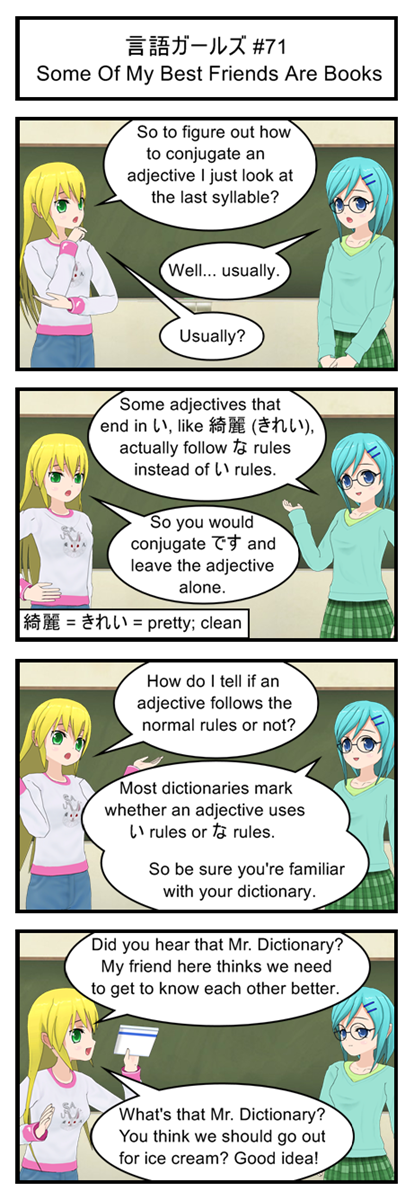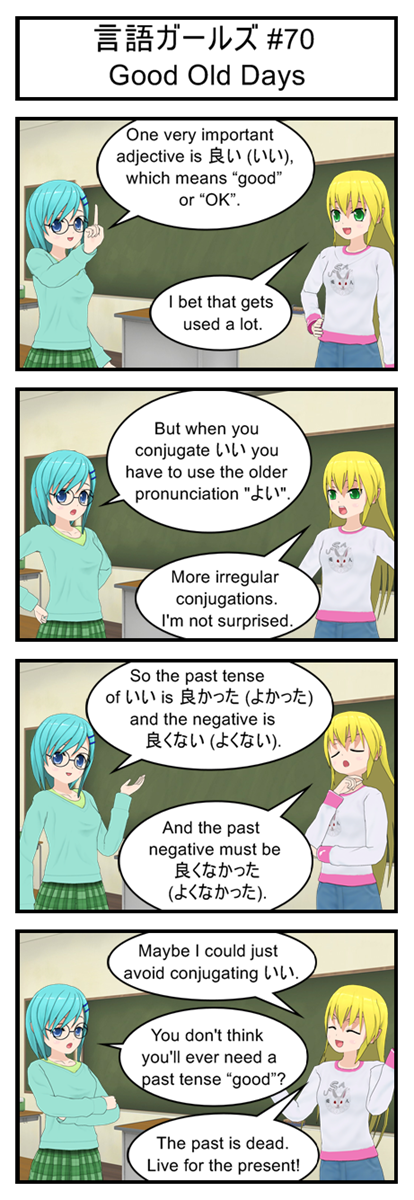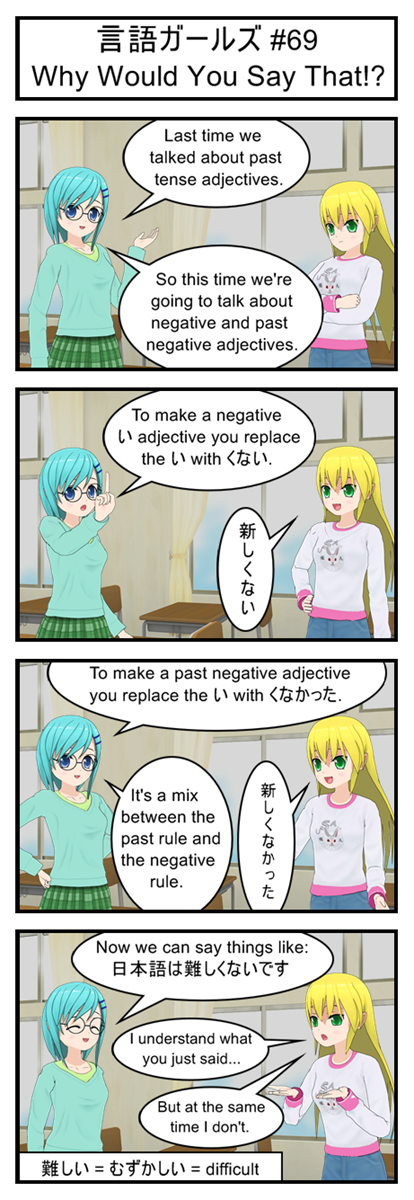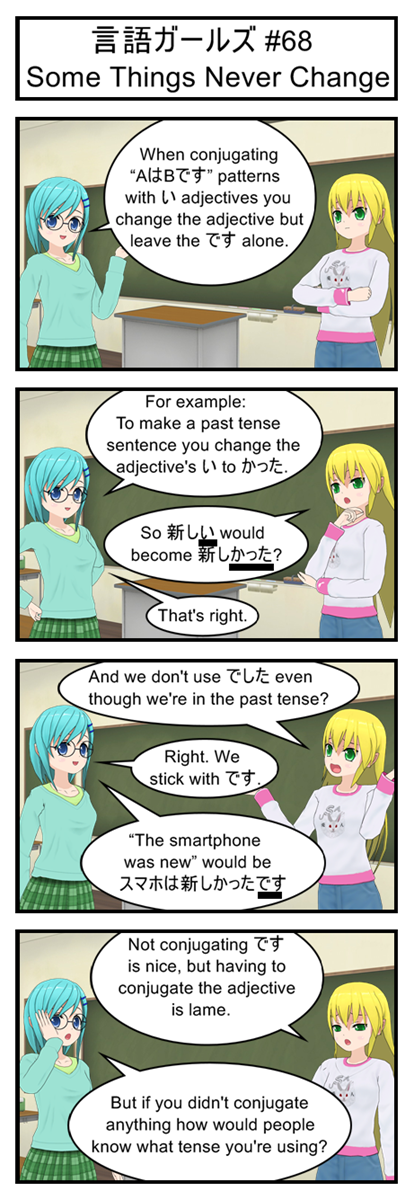
One rule of thumb is that if an adjective is written 100% in kanji, like 綺麗, it is probably a “na” adjective even if its last syllable is an い. It’s only words like 新しい that are written with an actual い that follow い rules.
Of course, there are still a handful of adjectives written with an actual い that follow “na” rules anyways, so even this rule won’t work 100% of the time. Just 95% of the time. Which isn’t half bad.
Vocabulary
綺麗 = きれい = pretty; clean
Transcript
言語ガールズ #71
Some Of My Best Friends Are Books
Yellow: So to figure out how to conjugate and adjective I just look at the last syllable?
Blue: Well… usually.
Yellow: Usually?
Blue: Some adjectives that end in い, like 綺麗 (きれい), actually follow な rules instead of い rules.
Yellow: So you would conjugate です and leave the adjective alone.
Yellow: How do I tell if an adjective follows the normal rules or not?
Blue: Most dictionaries mark whether an adjective uses い rules or な rules.
Blue: So be sure you’re familiar with your dictionary.
Yellow: Did you hear that Mr. Dictionary? My friend here thinks we need to get to know each other better.
Yellow: What’s that Mr. Dictionary? You think we should go out for ice cream? Good idea.


